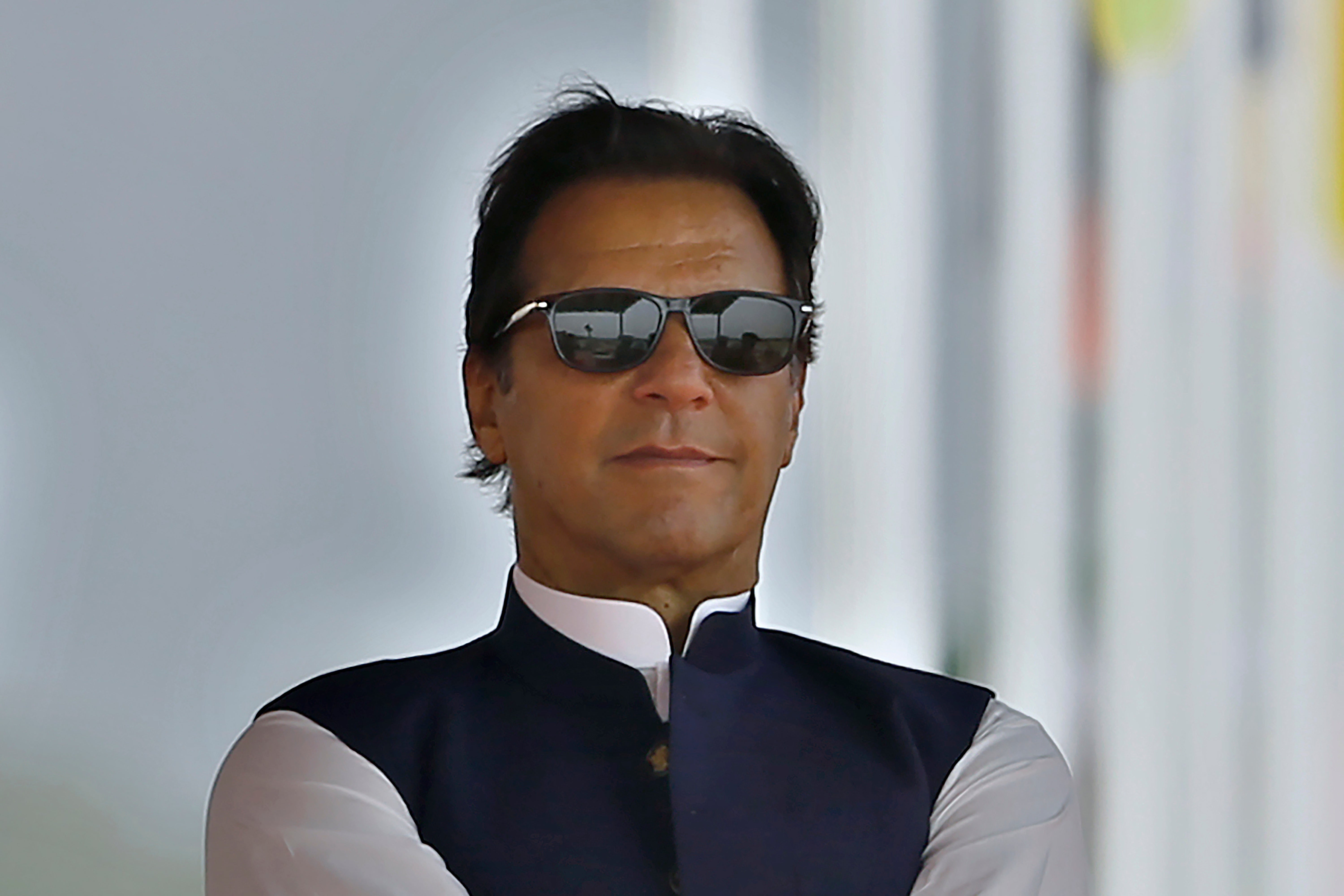Pakistan PM Imran Khan faces no-confidence vote today
Prime minister would have to step down if 172 members of 342-member House vote against him

Your support helps us to tell the story
From reproductive rights to climate change to Big Tech, The Independent is on the ground when the story is developing. Whether it's investigating the financials of Elon Musk's pro-Trump PAC or producing our latest documentary, 'The A Word', which shines a light on the American women fighting for reproductive rights, we know how important it is to parse out the facts from the messaging.
At such a critical moment in US history, we need reporters on the ground. Your donation allows us to keep sending journalists to speak to both sides of the story.
The Independent is trusted by Americans across the entire political spectrum. And unlike many other quality news outlets, we choose not to lock Americans out of our reporting and analysis with paywalls. We believe quality journalism should be available to everyone, paid for by those who can afford it.
Your support makes all the difference.A no-confidence motion against Pakistan prime minister Imran Khan was delayed on Saturday as political uncertainty continued to deepen in the country.
The no-trust vote in the national assembly – a major challenge to his political career – was initially scheduled for Saturday morning. But the parliament was abruptly adjourned ahead of the planned vote for one-and-a-half hours as Mr Khan was not present in the House.
The speaker had said the national assembly would reconvene later in the day to decide on the vote to oust the prime minister.
But after the break, voting was further delayed and is now expected to take place after 8pm — post iftaar, when Muslims break their Ramadan fast after sunset.
Some reports have, however, indicated that the vote may be delayed by Mr Khan’s party. Federal minister for information and law Fawad Chaudhry has also reportedly indicated that the vote could be postponed to next week.
The leader of the opposition in Pakistan, Shehbaz Sharif, said on Saturday: “I hope you [Speaker] will carry out today’s proceedings of the House as per the order of the Supreme Court. I urge you to stand for the Constitution and law.”
Mr Khan had last week dissolved Pakistan’s national assembly and called for fresh elections on Sunday in a bid to block the no-confidence vote that was expected to remove him from his office. He had even said that he would not accept the result of the vote and dismissed it as part of a US-led conspiracy against him.
But on Thursday, the Supreme Court of Pakistan overturned Mr Khan’s decision to dissolve the parliament and declared his blocking of the no-confidence vote unconstitutional.
The unanimous ruling by a bench of five judges declared that Mr Khan’s attempt to stop the vote to declare fresh elections and dissolve the parliament was “contrary to the constitution and the law”. It had added that Mr Khan could not advise the president to dissolve assemblies and that it was “illegal”.
Saturday’s vote is the second attempt to begin voting since last Sunday, when deputy speaker Qasim Suri dismissed the no-confidence motion. The ruling was signed by speaker Asad Qaiser, who called a snap election on the direction of Mr Khan in his bid to cling to power.
The move created a constitutional crisis in the country as the opposition called it “treason” and undemocratic, challenging the legality in court. The opposition had also called it an “unprecedented” and a “blatant violation” of Pakistan’s constitution.
Mr Khan on Friday night called on the public to hit the streets peacefully and protest against an “imported government”.
He also expressed disappointment over the Supreme Court’s decision and said: “I will not accept this imported government, I will take to the street. Only people can bring me to power and I will come back with the help of the people.”
“I dissolved the assembly because I want people to elect the new government,” he added. “I am ready for the struggle; join me in peaceful protest.”
It is widely expected that Mr Khan will lose the vote and the country that has been plunged in deep political turmoil will soon have fresh elections.
Mr Khan’s party, the Pakistan Tehreek-e-Insaf party, lost the majority in the national assembly earlier this month when a key coalition partner said its seven lawmakers would vote with the opposition.
Mr Khan would become the first prime minister in the history of the country to be ousted by a no-confidence vote if the motion is tabled and the majority votes against him. This would be in line with Pakistan’s history of having no prime who has survived the full term.
He would have to step down if 172 members of the 342-member House vote against him.
The nuclear-armed country of 220 million people is already reeling under economic stability, with the Pakistani rupee currency hitting all-time lows on Thursday and foreign exchange reserves tumbling. The political instability now risks the delay of the release of loan instalment from the International Monetary Fund to the country.
The opposition, meanwhile, is ready with a new candidate, Shahbaz Sharif, for the job, and says it has the support of 175 lawmakers.
Join our commenting forum
Join thought-provoking conversations, follow other Independent readers and see their replies
Comments